McShane Addresses Clerical Abuse
After a series of credible allegations of sexual misconduct against priests who were connected to the Fordham community, Rev. Joseph M. McShane, S.J., president of the university, said he is infuriated and does not want any student to feel they are in a compromised situation because of the university’s proximity to Murray-Weigel Hall.
“It would be hard for me to put into words how angry I am that priests, my brothers, used this position of authority and affection to take advantage of the most vulnerable people in their parish communities and of their school communities,” said McShane in an interview with The Fordham Ram.
McShane addressed abuse allegations connected to the university, Fordham Preparatory — the Jesuit high school on Rose Hill’s campus — and Murray-Weigel Hall, the Jesuit infirmary and retirement home at the university’s campus.
He cited the university’s advisory committee as active in publishing the names of all of the priests with credible allegations of sexual misconduct who have been at the university or in its associated ministry. The committee was created in January 2019 by the Board of Trustees to review and analyze allegations of abuse after the Northeast Province released its January 2019 list of priests with credible allegations of sexual misconduct of a minor.
According to McShane, the university does not have legal control of Fordham Preparatory or Murray-Weigel but still wants people to report to the university so it can begin to address the process of healing.
“The prep was ours until 1970 and then we separated,” said McShane. “The two institutions went their separate ways. So whatever happens now or after ’70 is not our legal concern but it’s our moral concern in many ways.”
McShane referred to Murray-Weigel as property on land that is immediately adjacent to the university. He said the men living in Murray-Weigel were sent there by the province without conciliation with him or his predecessor.
“This was kind of shocking when the list came out and we discovered who was there and there were five guys who were on the list,” said McShane. “So we said they can’t live here. The province said, ‘You know, this is our property.’ I said, ‘It’s your property, you know, but this is my world. This is where my students are.’”
According to McShane, the province and the university went back and forth for a little while on the issue.
“I said, ‘This is not right.’ They said, ‘What do you mean it’s not right? I have to take care of these guys,’” said McShane, recalling his conversation with the province. “I said, ‘Yeah, but these students are my concern. And what’s more, they’re my concern because you put me here.’”
According to McShane, the province agreed. After the university temporarily barred student volunteering at Murray-Weigel this past January, McShane reversed the bar within less than two weeks based on an agreement between the province and McShane that no restricted Jesuits would be assigned to Murray-Weigel.
Michael Gabriele, director of communications for the Northeast Province, declined to comment on the basis that conversations McShane referred to were between two people. Margaret Monahan, executive director of Murray-Weigel, did not respond to multiple requests for comment.
This past August, Rev. William J. O’Malley, S.J., former adjunct professor in the School of Professional and Continuing Studies and theology professor at Fordham Preparatory School, was removed from Murray-Weigel after he was accused of sexual abuse against a minor.
O’Malley is one of 11 priests the Ram has tracked who have lived at Murray-Weigel with credible accusations of sexual misconduct of a minor brought against them.
McShane cited O’Malley as an example of the agreement between the university and the province. Currently, if an allegation of sexual misconduct of a priest living at Murray-Weigel surfaces, the university and the province notify each other and remove the priest, according to McShane.
He said it is horrifying to see fellow Jesuits commit abuse, but his major concern is for the victims.
“I am deeply concerned about the people who have suffered,” he said. “You can’t sugarcoat it, it’s suffering. Abuse seems to be so facile a word. But suffering is really what these young women and men have been subjected to.”
The Jesuit community is taking strides to ensure incidents of sexual misconduct in the Church come to an end, according to McShane. He named an annual training course required of every Jesuit that covers sexual abuse and how to address and report it in one’s community.
“I’m not going to put my head in the sand, and say, ‘Oh no, nothing ever happened.’ These terrible things happened,” said McShane. “Some of the perpetrators were my brothers in the society. And we are going to address it. It’s not easy, but it has to be done.”



































































































































































































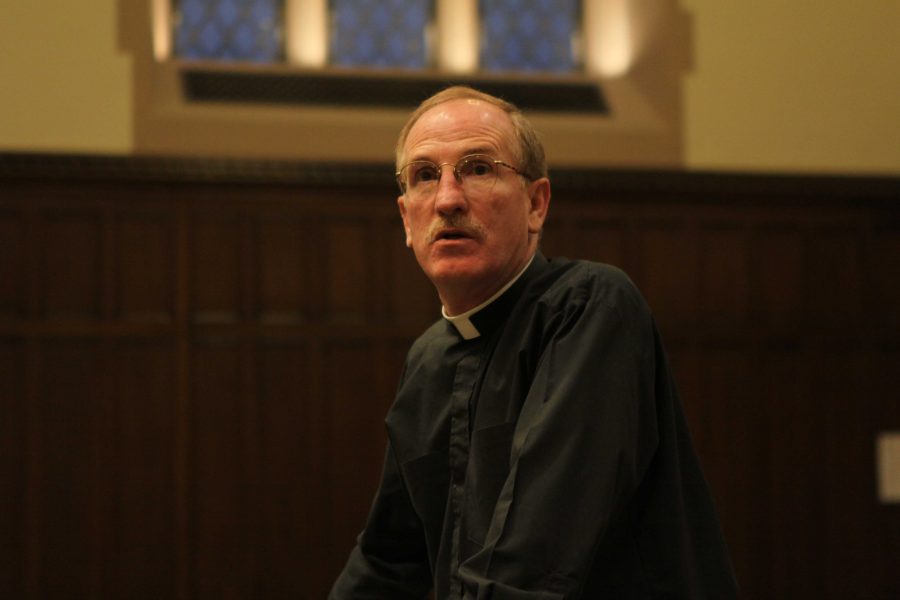




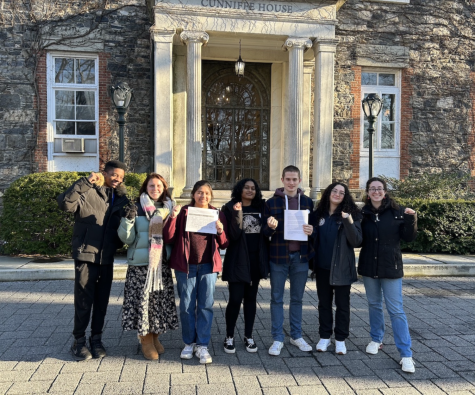
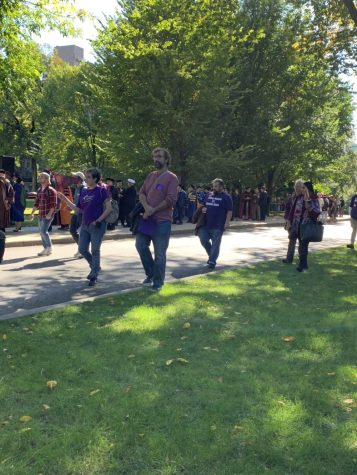
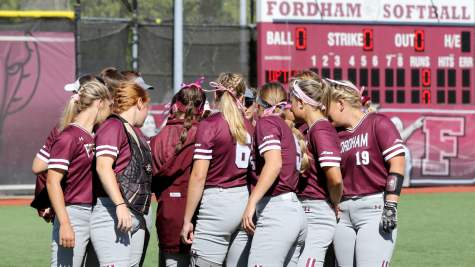
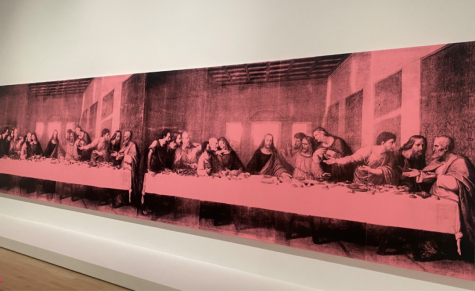
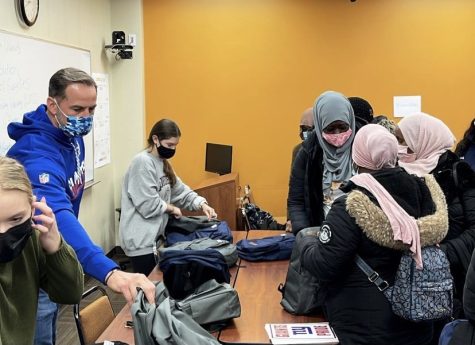
Tom Kloc ('74 CBA) • Jan 21, 2020 at 11:55 pm
Fr. Joseph McShane, Pres. Of Fordham University:
I’m absolutely ashamed by my fellow graduate of Fordham University, Pat Cipollone.
A lot of what the College of Business Administration taught me with only two required philosophy and theology courses took better hold than whatever you taught to Mr. Cipollone.
Time to revoke his degree.
Christopher Pegis • Dec 26, 2019 at 5:56 pm
After reading this article I was left wondering about a couple things. Who or what defines “credible “? Also, I don’t get any sense of presumption of innocence. I understand it’s a hot topic, but thirty year old allegations are virtually impossible to prove concretely either way. The stain will never go away and I don’t get any sense of concern for Fr. O Malley. There is more of he’s guilty and we must protect the children. I can’t speak for the other four priests run out of the residence, but I knew father Bill. He got me through some pretty heavy stuff a long time ago and during that time there was never a shred of anything untoward. Sadly, the real blame is with the church itself. By not addressing certain problems decades ago, now the problem is so inflamed that anyone that comes forward with a 30 year old claim must be believed! Rewind the tape and watch the Kavanaugh hearing….
Debbie Di Fino • Oct 2, 2019 at 6:21 pm
Father Mc Shane is the biggest reason we love Fordham!
Three generations of our family have attended Fordham.
Proud to be a Rams and even prouder of fr. Mc Shane’s bravery and doing the right thing.
Thank you.